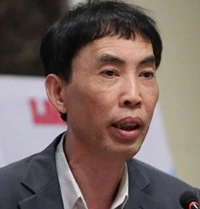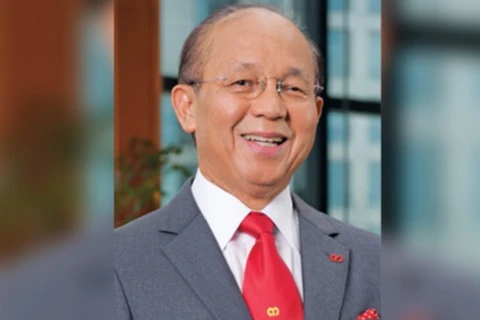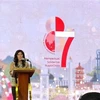 The examination of high-quality inox tube at a factory in Ganyu district in China's eastern province of Giangsu. (Source: news.xinhua.net)
The examination of high-quality inox tube at a factory in Ganyu district in China's eastern province of Giangsu. (Source: news.xinhua.net)The third Regional Comprehensive Economic Partnership (RCEP) Ministerial Meeting held on August 24 in Kuala Lumpur, Malaysia, reached consensus on the mode of goods trade, which naturally stipulates the proportion of goods to be exempted from tax.
The meeting brought together the ministers of economy from the 10 ASEAN member countries, Australia, India, the Republic of Korea, Japan, New Zealand, and China, and ASEAN General Secretary Le Luong Minh.
The countries agreed that once RCEP takes effect, 65 percent of import goods into these 16 countries will not be levied and the rate will be 80 percent within the next 10 years.
This is considered as a success and a great breakthrough in the process of negotiation towards a regional free trade agreement.
Malaysian Minister for International Trade and Industry Mustapa Mohamed said the details of the agreement would be discussed within the next few weeks and all parties’ view were to complete the majority of RCEP negotiation contents by the end of this year.
The participating ministers appreciated the progress made after nine rounds of talks, which began in October 2012, especially several breakthroughs that helped tackle some important issues.
They also took notice of the high growth of RCEP countries in the event of a slowing global economy.
In 2014, the total output of the RCEP economies reached 22.7 trillion USD, making up 29.3 percent of the global economy.
Total trade of the RCEP economies was 10.8 trillion USD or equal to 28.4 percent of the world’s total trade.
The RCEP countries in 2014 drew 366.3 billion USD in foreign direct investment capital, equal to 29.8 percent of the global FDI capital.
The ministers expressed their belief that accounting for nearly half of the world’s population, the RCEP region would have great potential to develop thanks to better market accessibility and deeper economic integration, therefore improving the living standards for billions of people in the region.
Besides pledge on import tax cut, the ministers observed that parities needed to soon hold practical talks on market accessibility and accelerate the drafting of other chapters of the agreement.
With the goal of reaching a modern, comprehensive and high-quality and win-win economic agreement, the ministers said the RCEP Trade Negotiation Committee (TNC) should make more efforts to reach a balanced and comprehensive agreement taking different development levels of participant countries into consideration.
The ministers also asked the TNC to intensify efforts to solve existing difficulties and create a draft on the fields agreed in the RCEP agreement for submission to the 10th round of talks, which is scheduled to take place in Busan, the Republic of Korea, in October.
The ministers emphasised that the TNC needed to go into rounds of talks with the deadline at the end of this year on their mind.-VNA























